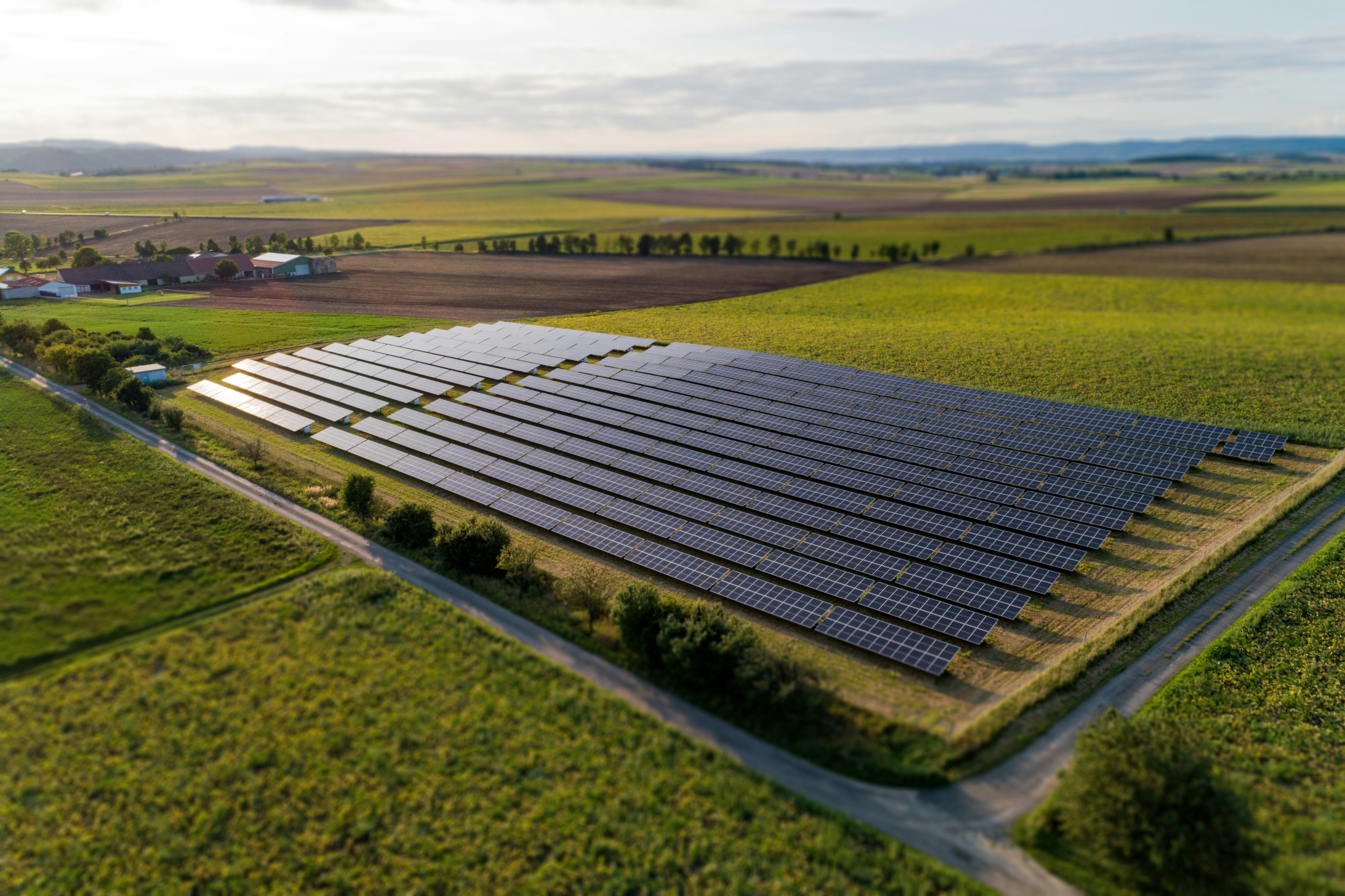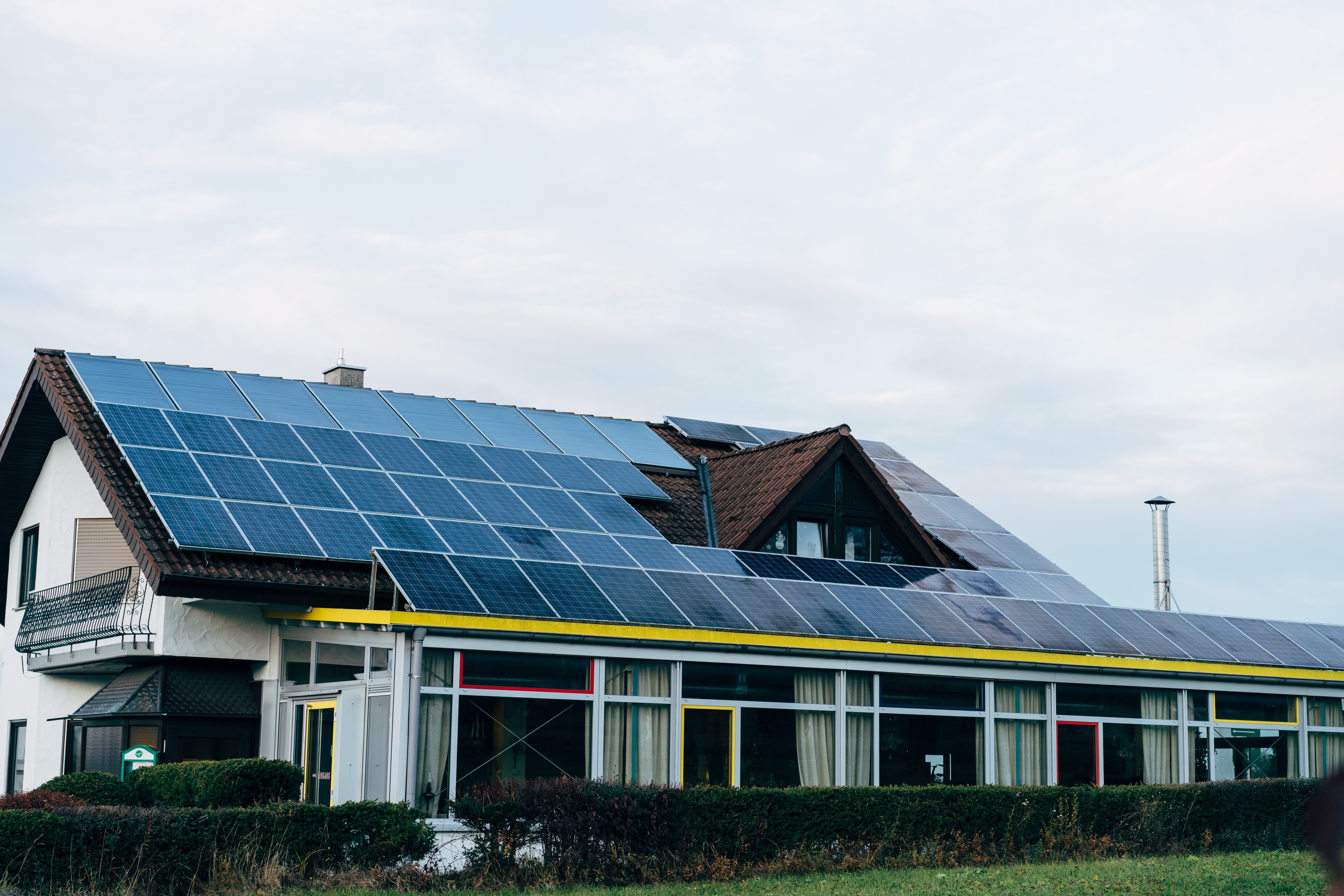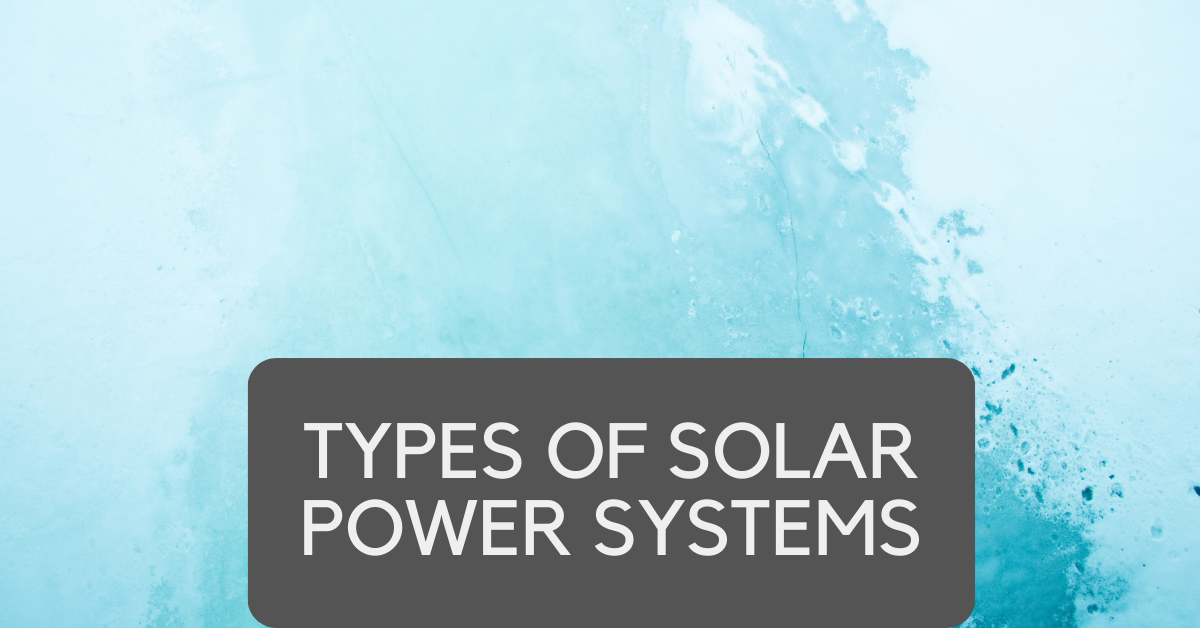In this article, we will discuss the three main types of solar power systems: on-grid, off-grid, and hybrid, differentiating and expanding upon each system’s unique characteristics.
In the ever-evolving world of solar energy, photovoltaic (PV) solar systems come in different configurations to cater to a variety of energy needs and usage scenarios. These systems have the potential to revolutionize how we generate and consume electricity.
TABLE OF CONTENTS
TYPES OF SOLAR POWER SYSTEMS
On-Grid Solar Systems
Powering Connection and Savings

On-grid PV solar systems, also known as grid-tied systems, are the most common and straightforward solar energy solutions.
This system is directly linked to the electrical grid. To explain its operation, let’s break it down by the time of day and its operation. During the night, when there’s no solar input due to the absence of sunlight, the household relies entirely on the grid for its energy needs. While the batteries may retain some charge from earlier in the day, these are often reserved for backup purposes. As dawn breaks, energy consumption begins to rise as homeowners prepare for the day. Electricity at this point is sourced from a combination of the solar system and the grid. Batteries are just starting to charge as sunlight is still not that much. At midday, when the sun and the solar system both reach their peaks, the entire energy demand is fulfilled by the solar system, overall consumption anyways are low since most family members are away at work or other engagements.
On-grid systems are notable for their efficiency, allowing surplus electricity to be exported to the grid and credited to the owner, potentially reducing energy costs. Their cost-effectiveness stems from their reliance on the grid as a virtual energy storage solution, eliminating the need for expensive battery storage. However, these systems have limited energy independence during power outages, as they depend on the grid for their electricity supply.
On-grid systems are ideal for residential and commercial applications in areas with reliable grid access. They allow users to reduce their electricity bills, participate in net metering programs, and contribute to a greener environment by feeding excess energy back into the grid.
Learn more about how solar works. Click this link.
Off-Grid Solar Systems
Self-Reliance and Energy Freedom

Off-grid PV solar systems represent complete energy self-sufficiency. These systems operate independently from the electrical grid, relying on batteries to deliver electricity when sunlight is unavailable. Choosing this system entails disconnecting from the utility company’s electrical supply. Off-grid systems are designed to ensure a consistent power source for your home, regardless of the time of day or night. Hence the sub-title “self reliance and energy freedom” which are the best terms to describe this system. Of course, opting for this system necessitates the design of a robust and comprehensive setup capable of providing continuous power, day and night, throughout the entire year..
Key features of off-grid systems encompass energy independence, making them a suitable choice for remote or grid-restricted areas. These systems rely on energy storage through batteries, essential for storing surplus energy generated during sunny periods to supply power during nighttime or inclement weather. Despite the higher initial investment associated with battery storage, off-grid systems promise long-term cost savings and enhanced energy reliability.
Off-grid systems are a lifeline in remote regions, agricultural settings, or for those seeking complete energy autonomy. They power homes, farms, cabins, and various off-grid facilities.
Hybrid Solar Systems
Maximizing Efficiency and Reliability

Hybrid PV solar systems combine the best of both on-grid and off-grid systems. Think of them as solar systems with robust battery storage capable of meeting energy needs throughout the year while remaining connected to the grid. Their operation depends on specific circumstances, as each case is unique, with solar batteries serving as the primary energy source. Typically, solar systems are installed to achieve complete power independence; in this context, the grid is only used as a backup, primarily during emergencies or when the battery system requires maintenance or encounters a malfunction. Since they incorporate elements from both systems, they offer the advantages of each while enhancing security and stability for energy supply.
This system offers a range of advantages, including optimizing energy use by maximizing self-consumption, providing backup power for uninterrupted supply during grid outages, and offering flexibility through customizable configurations to match specific energy requirements and usage patterns.
Hybrid systems are gaining popularity among homeowners and businesses looking to combine cost savings with energy independence and reliability. They are especially valuable in areas with unreliable grid access.
To learn more about the advantages of using solar as source of energy, follow this link.
CONCLUSION : Final Solar Thought
To sum it up, the world of PV solar systems is quite diverse, catering to a variety of needs. On-grid systems save money and benefit the environment, while off-grid systems grant full energy independence and resilience. Hybrid systems offer a balance of efficiency and backup power. The decision on which system to choose depends on your specific energy requirements, budget, and how self-sufficient you want to be. By grasping the unique features and advantages of these PV solar systems, individuals and businesses can make informed choices about tapping into solar power for a more sustainable future.

